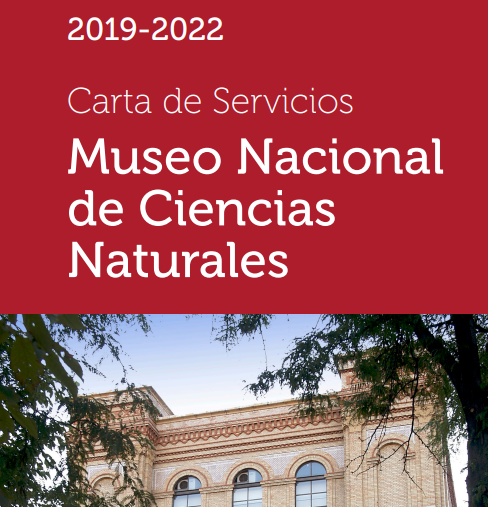The Laboratory of Environmental Analyses and Taphonomy (LeaT)
The Laboratory of Environmental Analyses and Taphonomy (LeaT)
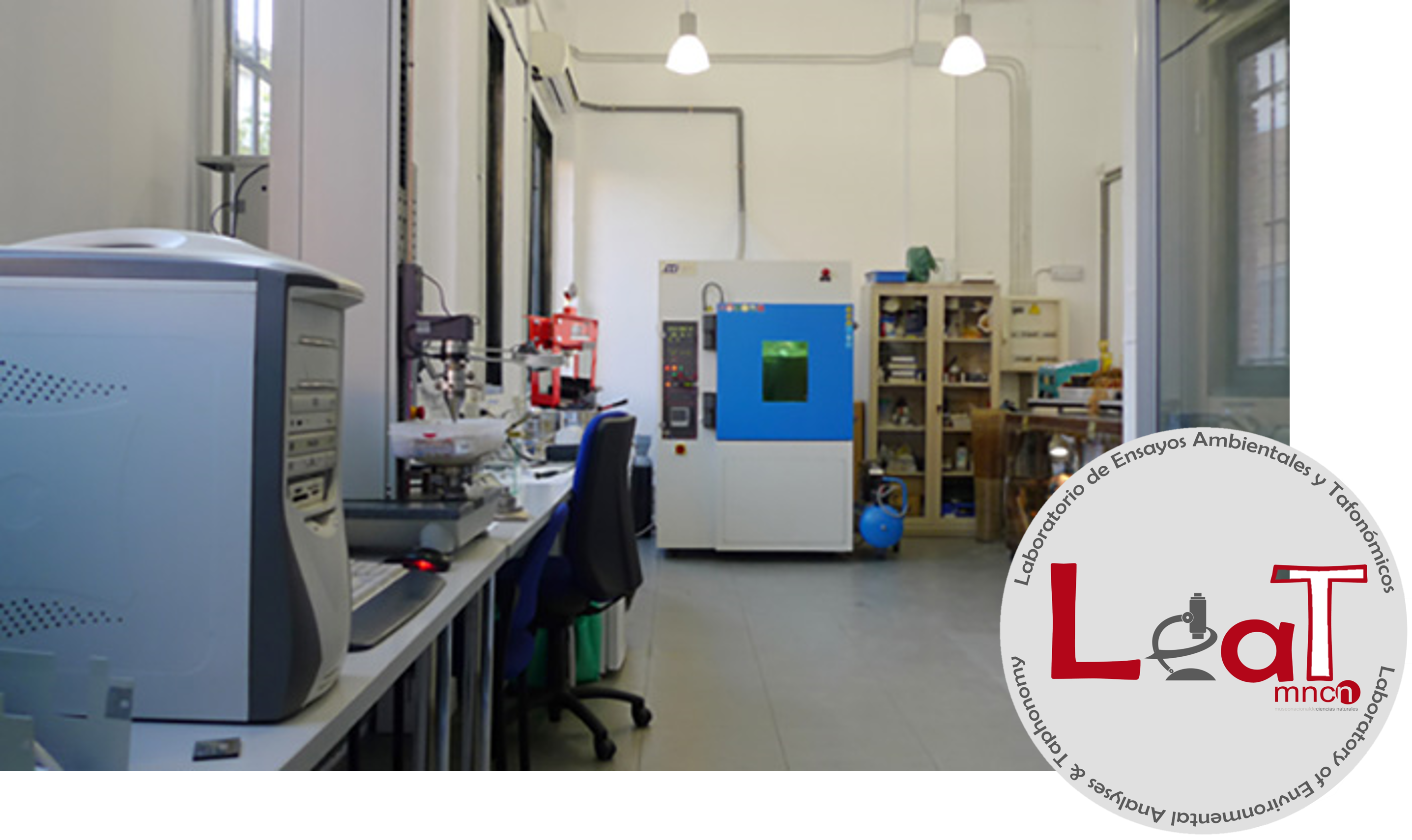
SUMMARY.
The Laboratory of Experimental Taphonomy, at the National Museum of Natural Sciences (Madrid, Spain), is the first laboratory worldwide of these characteristics. The objective of this laboratory is the simulation of processes mainly referred to mechanical and environmental experiments. This laboratory simulates processes highly controlled, standard climates and extreme environmental conditions and atmospheric parameters that can be varied independently or creating climatic cycles.
Climate Change, pollution and environmental effects change the quality of life and human health. This lab may test new Environmental Technologies that can reproduce situations that involve different aspects related to HEALTH. These techniques are not destructive, they are practiced on different materials (biotic and abiotic) to characterize their durability and resistance. Mechanical deformations of inert materials and biomaterials to characterize fissures, breakage and deformations, as well as abrasion and polishing and, in general, environmental, geological and mechanical tests of a large variety of materials and samples.
The origin of the laboratory is the taphonomic study of macro- and microvertebrates, but we have experienced with pollen (especially its durability, as well as referred to allergies and asthmatic illness) and can work with samples of different nature such as shells, seeds, feathers, hair, leather, coal, lithic artefacts or even building materials, industrial paintings, ceramic, prosthetic materials, plastics, cellulose, glass, pigments, textiles, resins, or paper.
The laboratory may have an interest, not only for archaeo-paleontological samples, biomaterials, biological, geological and / or forensic specimens, but also for preservation of specimens and materials stored in basements or singular storage deposits, environmental/mechanical experiments of different materials.
Fill in our REQUEST FORM if you are interested in our services.
Laboratory of Environmental Analyses and Taphonomy (SCT CSIC Código: 826380).
ENVIRONMENTAL TESTING
Environmental tests consist of subjecting the sample to different environmental conditions of cold, heat, humidity, rain, etc. Under controllable and repeatable conditions that allow us to know the effect of these conditions on the exposed sample.
To this end, the Environmental and Taphonomic Testing Laboratory has specific equipment:
1. THE CLIMATIC CHAMBER:
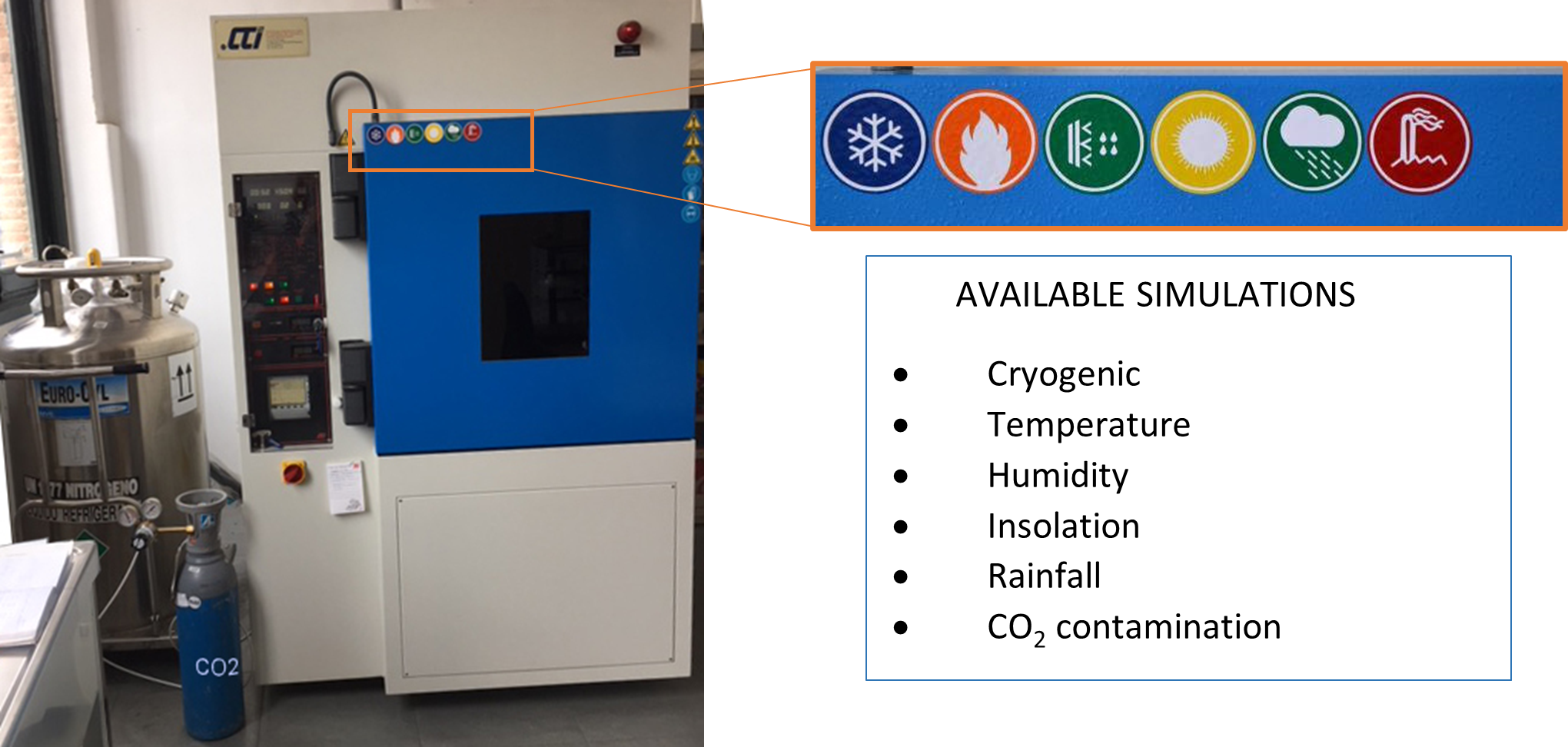
NEW!!! Accelerated Solar Radiation Function
The mean duration of standard climatic chamber experiments can be 1 to 3 months or more depending on the nature of the sample and the objective of the experiment. The mean duration of the CO2 experiments may be one to two weeks depending on the nature of the sample and experiment objectives. Finally, the mean duration of experiments using criogenic can be days depending on the nature of the sample and the experiment objective.
2. GREENHOUSE PROGRAMMABLE:

Cortesy of Xiomara Cantera (MNCN)
The mean duration of these experiments can be 1 to 3 months or more depending on the nature of the sample and the experiment objective.
MECHANICAL TESTING
Mechanical tests allow us to know the mechanical properties of a material and their microstructural state. The main trials are:
- Compression tests
- Deformation tests
- Tests to study material fractures.
1. MATERIALS RESISTANCE TEST BENCH
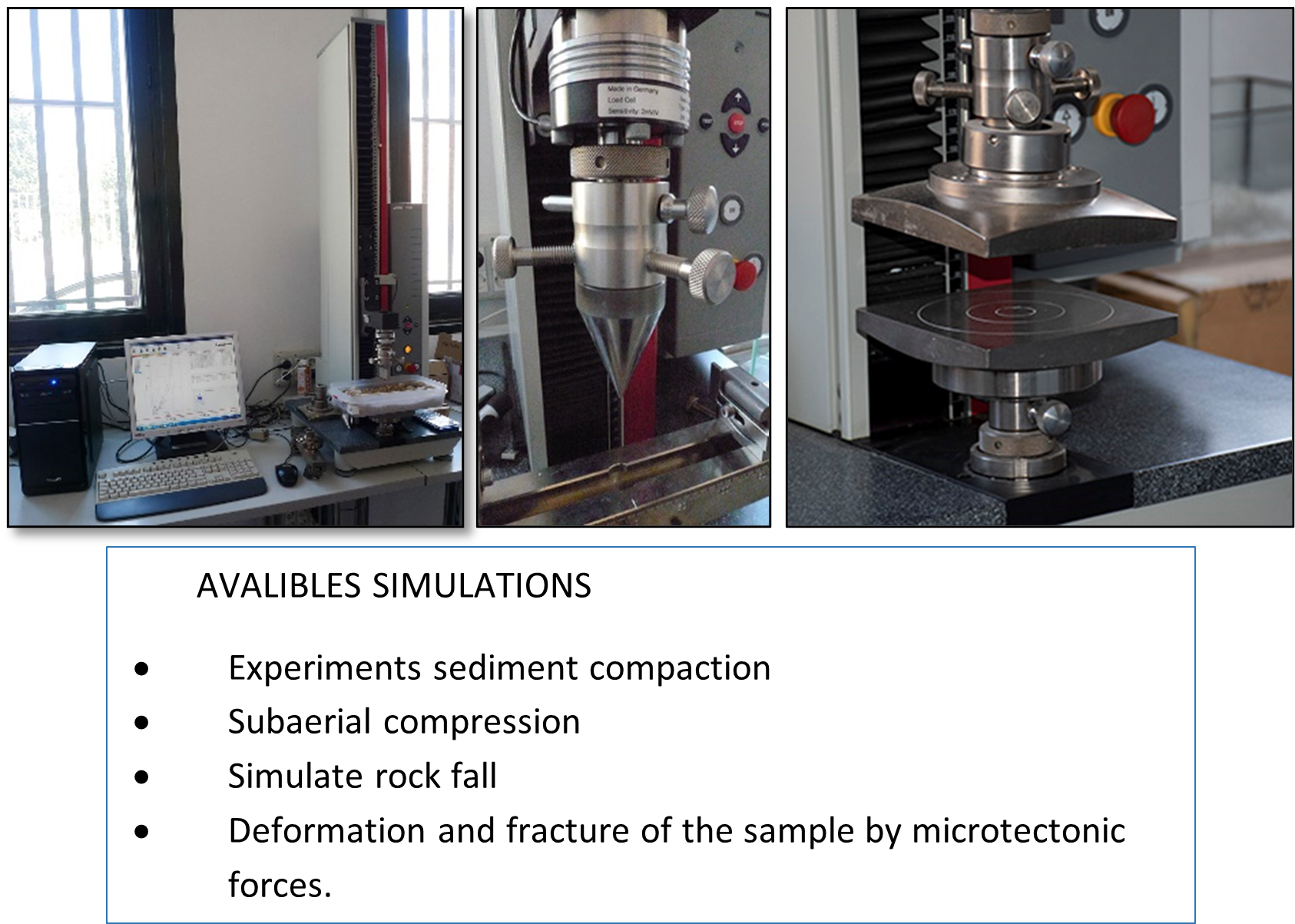
The equipment is connected to a standard PC to measure the strength, time of experimentation to fracture and values and diagrams of deformation/microfracture and fracture.
2. HYDRAULIC SHOP PRESS

This equipment is not automated or computer controlled.
ABRASIVE TESTING
The abrasion tests allow us to know the resistance of the material of the samples analyzed under different situations such as abrasion by desert sands, abrasion by friction of materials or erosion by water currents.
We have some equipments that allow us to carry out this type of test:
1. SAND-BLASTING CABINET
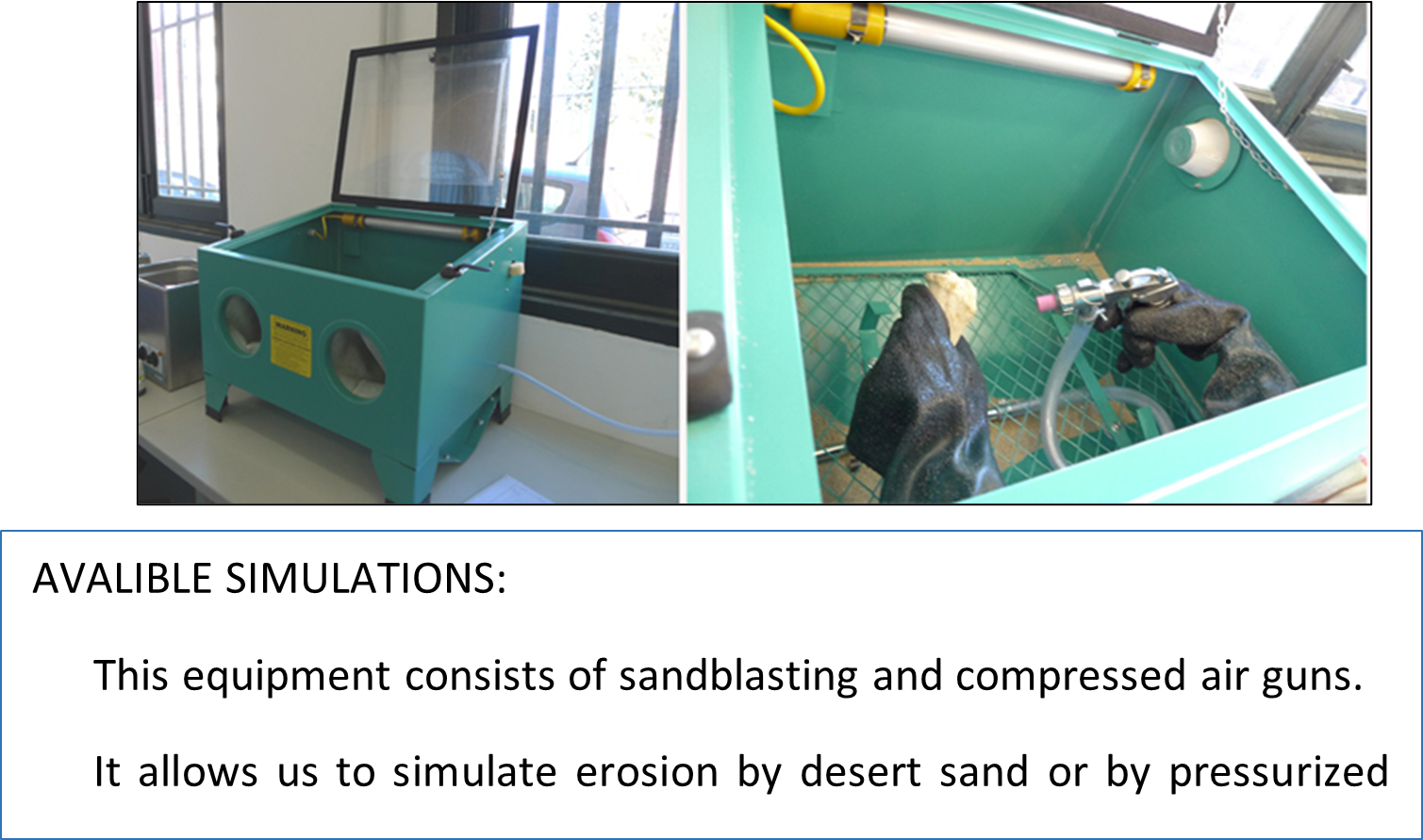
2. POLISHING MOTORIZED TUMBLERS
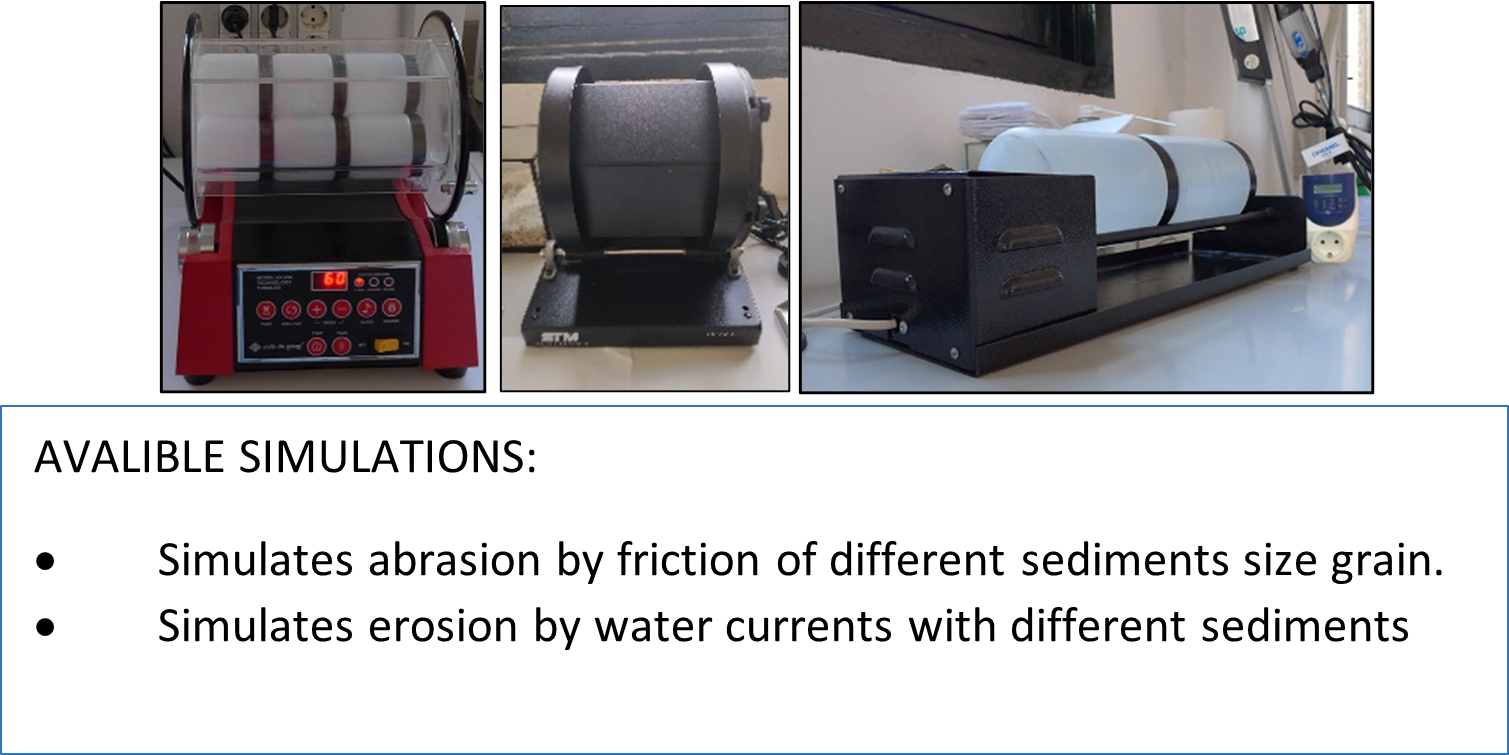
These experiments usually last several weeks or months.
THERMAL TESTING
Thermal tests allow us to know how the materials of our samples behave under high temperature conditions.
For this, the laboratory has the following equipment:
1. HIGH TEMPERATURES MUFFLE (1200ºC)
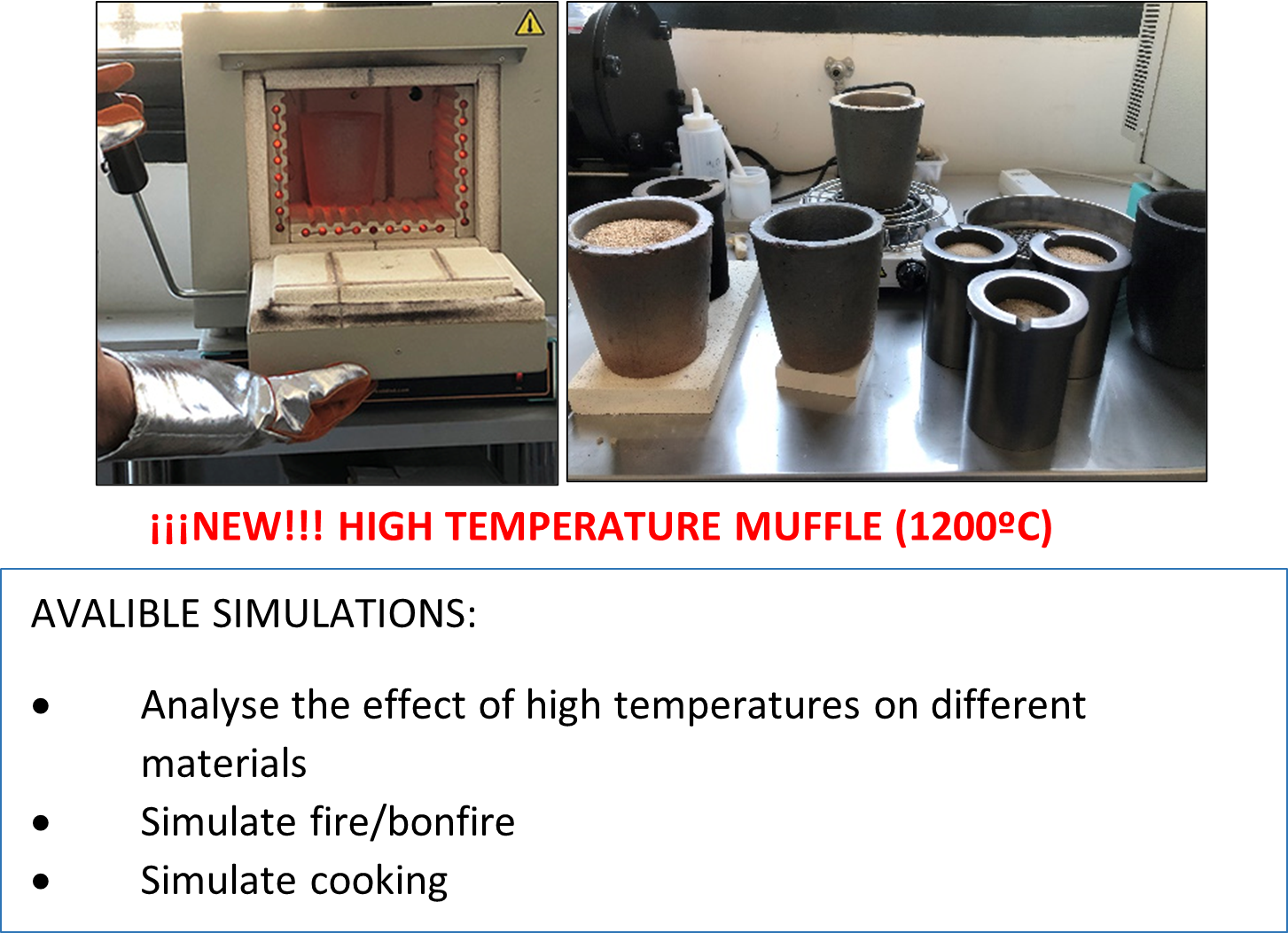
2. ELECTRIC GRILL

EXTRA EQUIPMENT:
Spectrophotometer. Pyranometer of high sensitivity for measuring solar radiation. Photography cabinet both under natural and ultraviolet lights. Manual saws (DRIMEL), scales, ultrasound cuvettes (with timer and thermostat), glass containers (sedimentation processes), refrigerators and freezers for samples, microscopes and magnifying glasses (portable and fixed/motorized or fixed) adapted to the study of samples large format (macromammal skulls) or small size (micromammals, with motorized digital image and video recording.
Samples are photographed before, during and after the experiments using optical microscopes with automatized focus in z and high resolution DIGITAL camera.
REPORT WRITING:
Reports and data processing of experiments including interpretation and all the artwork and complete taphonomic studies may also be done, but they must be budgeted according to the amount of sample provided for the study and whether the study exceeds 40 working days. Complete paleontological and/or taphonomic studies can be carried out from sediments collected in the field. These studies must be budgeted according to the amount of sample provided for the study.
The experiments are delivered with the graphic and photographic results of the sample before and after (and with documented intermediate observations).
TO KNOW MORE:
Schedule
Monday to Friday, 9:00-17:00
SERVICES:
ENVIRONMENTAL TESTING
(tap here to downloand)
MECHANICAL TESTING
(tap here to downloand)
ABRASIVE TESTING
(tap here to downloand)
THERMICAL TESTINGS
(Tap here to downloand)
INFORMATION:
Research advisor: Yolanda Fernández Jalvo (email: yfj@mncn.csic.es)
Scientific coordination: Research Team of Taphonomy of the MNCN
Technical Assistance: Alba Macho Callejo (email: alba.macho@mncn.csic.es)
Location: Ground floor at the Pinar 25 building.
Tel.: +34 91 411 1328/Fax: +34 91 566 8960.
*(BEFORE: Laboratory of Experimental Taphonomy LET)
REQUEST FORM
Fill in our request form (Download here)
SERVICE CHARTER MNCN
Download:
Staff
Research advisor: Yolanda Fernández Jalvo (email: yfj@mncn.csic.es)
Scientific coordination: Research Team of Taphonomy of the MNCN
Technical Assistance: Alba Macho Callejo (email: alba.macho@mncn.csic.es)
Location: Ground floor at the Pinar 25 building.
Tel.: +34 91 411 1328
Fax: +34 91 566 8960.








